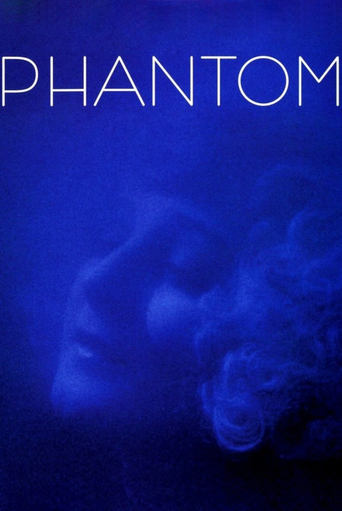st-shot
Town clerk Lorenz Lubota is a retiring bookish fellow about to settle into a contented hum drum existence when he is bowled over by a carriage on his way to work . Only stunned by the accident he becomes obsessed with the striking beauty of the driver turning the rest of his world upside down. Lorenz then foolishly pursues the woman with an ungovernable monomania that creates havoc in both his personal and professional life. Exploited by a slick grifter he betrays a benefactress and when his clumsy attempt to win the hand of his obsession falters he is exploited by a mother-daughter team and the spiral picks up speed.Made the same year as Nosferatu director FW Murnau taps down the phantasmagoria considerably in this slow go that reveals much of its outcome early, making it more of a cautionary tale than an intense suspense. Incurable romantic Lorenz moves through the film trance like most of the way and such unabated gullibility wears Phantom down.Their are a handful of lush tinted classic Murnau compositions that inform and a touch of misogyny that allows his female characters some lurid depth but for this cinema giant it is a sub par effort.
MartinHafer
PHANTOM is a very heavy-handed morality tale of a simple man who inexplicably becomes infatuated with a woman after seeing her only briefly. Despite being a seemingly nice guy, he throws his life away and the film revels in this spiral as well as the parallel story of his sister who becomes a prostitute.While the film on technical merits isn't bad (it did have some inventive camera work), it was a major letdown since it was directed by the legendary director F. W. Murnau. Had it been done by some studio hack, then I could understand why this film was so hokey and unbelievable--but from Murnau, his fans have come to expect so much more.Unlike some reviews on IMDb, mine is a bit unusual in that I have now seen just about every known Murnau film in existence today (PHANTOM was the last) and so I can compare it to the body of his work. Clearly, it is the worst of his films and lacks the magic and genius that Murnau is known for having. You might be surprised to hear that although his most famous film is NOSFERATU, it may not be his best film--mostly because NOSFERATU, like PHANTOM, seems a tad old-fashioned and stilted--even for 1922. This can be forgiven in NOSFERATU because despite these lulls, the rest of the film is so transcendent and amazing--making it one of the greatest silent films of all time. There is nothing about PHANTOM that can make you overlook the very dated plot--it's just heavy-handed and not particularly memorable.As I said, Murnau made some truly amazing films. Aside from NOSFERATU, he is most famous for the Oscar-winning SUNRISE, but neither of these is my favorite. I love and recommend you see FAUST because the camera work and artistry is just amazing--making Goethe's story a freshness and style that just have to be seen to believed. I also liked it because I (unfortunately) have read the very long book "Faust" and found the film actually made me like the story! THE LAST LAUGH and TARTUFF are also simply wonderful films that any serious student of German cinema must see.So, my advice is to watch PHANTOM if you like, but if you aren't acquainted with F. W. Murnau's films, try any of the others first--otherwise you might not be able to detect his genius and deftness.
bernebner
The print that I rented is of very poor quality. Additonally, I did not realize that not only was there not a musical soundtrack, but subtitles were in German. You can spot the Murnau talent there but I don't call this essential viewing.
junkySTL
The story of a man Lorenz Lubota (played by Alfred Abel) who chases a woman Pfandleiherin Schwabe (Grete Berger) who keeps escaping him and is, virtually, like a phantom. This drama is not as potent as Murnau's other attempts at heart wrenching dramatic cinema (such as TABU and SUNRISE). Much like SUNRISE this film suffers from a running time that could, easily, be cut in half. There are not as many interesting elements in this story as, say, THE HAUNTED CASTLE or FAUST. But still it is worth a look for any of Murnau's dedicated fans. It includes Murnau's usually study of human suffering and torment, and his supernatural imagery (a ghostly horse carriage, and a leaning city- much like Weine's CAL
